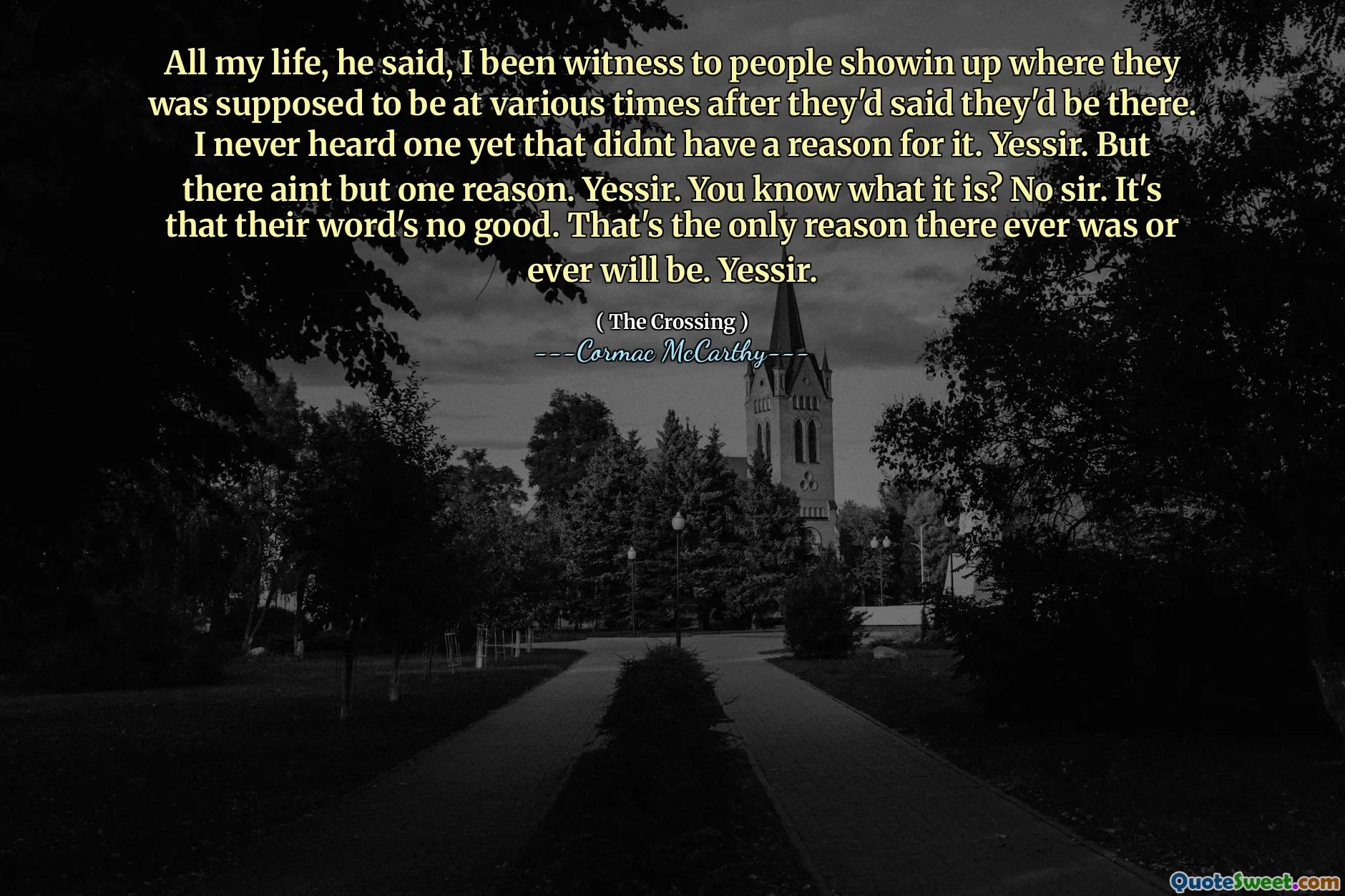
All my life, he said, I been witness to people showin up where they was supposed to be at various times after they'd said they'd be there. I never heard one yet that didnt have a reason for it. Yessir. But there aint but one reason. Yessir. You know what it is? No sir. It's that their word's no good. That's the only reason there ever was or ever will be. Yessir.
In Cormac McCarthy's "The Crossing," a character reflects on the reliability of people's promises and the reasons they often fail to honor them. He notes that throughout his life, he has observed countless individuals arrive late or fail to show up at all, typically justifying their absence with various excuses. This perspective reveals a deep skepticism regarding human integrity and the value of one's word.
The essence of his observation is blunt yet profound: there is ultimately only one true reason for people not meeting their commitments, which he suggests is the unreliability of their word. This sentiment speaks to a wider theme of trust and accountability in relationships, highlighting the disappointment felt when promises are unkept. McCarthy captures an inherent human flaw, emphasizing the importance of honesty and the implications of failing to uphold it.





